The World Health Organization estimates that about 1 in 100 children worldwide has autism spectrum disorder (ASD). The CDC estimates that roughly 2% of adults in the United States have autism. While not guaranteed, your chances of knowing someone with autism, or even having it yourself, are pretty good!
I grew up believing that having autism always meant experiencing emotional outbursts and sensory sensitives, based on the one autistic person I knew. But as I got older, I realized it was a looooot more complicated and nuanced than that.
When you want to learn more about autism spectrum disorder, it’s helpful to read up on the topic. When you want to learn lots, it’s best to seek out expert advice – someone who’s experienced it first-hand.
That’s why I’ve compiled this list of books about autism by autistic authors. If we’re going to educate ourselves on such an important topic, why not go straight to the source with the best books, right?
Best Books About Autism by Autistic Authors
Ready to learn about autism spectrum disorder from people who live it every day? This list of books by autistic writers offers real insights and experiences you won’t find anywhere else.
You’ll discover personal stories, practical advice, autistic characters, and unique autistic voices and perspectives that can help you better understand autism and the autistic experience.
Stories from Autistic Voices

The book brings together a rich variety of experiences and personal stories from autistic people who share what helped them grow and achieve their goals. Each chapter offers unique perspectives on navigating life, education, and relationships through an autistic lens.
These first-hand accounts give you practical strategies that worked for real autistic adults. You’ll learn about different coping methods, support systems, and paths to independence that helped these individuals thrive.
Many parents and caregivers praise how this book helped them better understand their autistic loved ones. The diverse range of experiences shows there’s no single way to succeed, and you can find ideas that might work for your situation.
The stories focus on hope and achievement while staying realistic about challenges. You’ll discover how different people overcame obstacles and found their own ways to live fulfilling lives.
Pros
- Real experiences from diverse autistic voices
- Helpful advice for parents and caregivers
- Inspiring success stories and practical tips
Cons
- Focuses mainly on higher-functioning experiences
- Some stories may not apply to all situations
- Limited coverage of non-speaking autistic perspectives
Sincere Voices: An Autism Guide
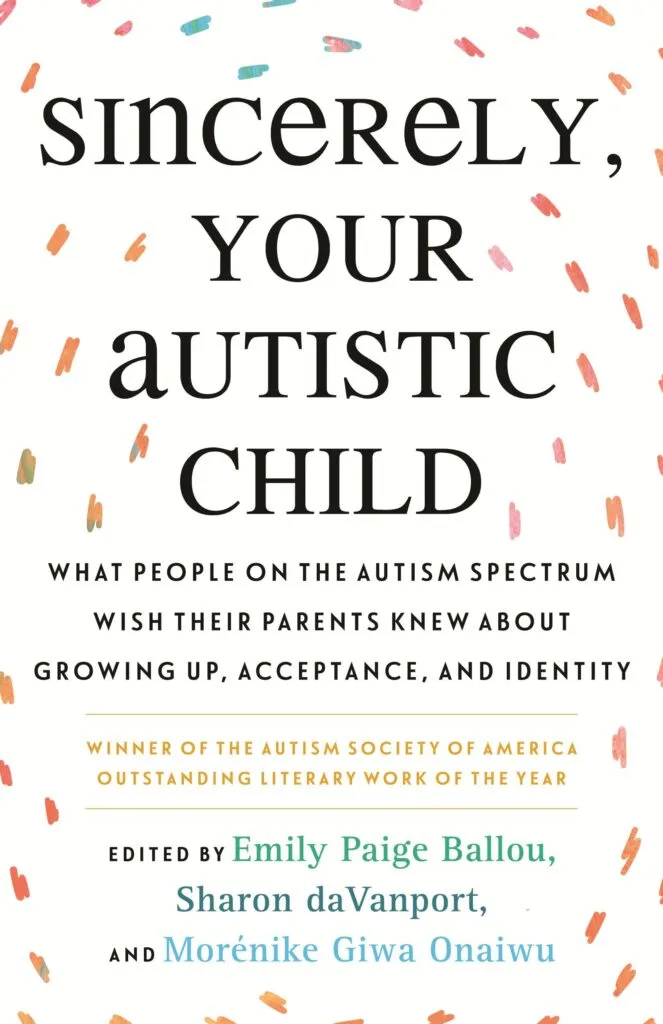
This book brings together authentic stories from autistic adults who want to help the parents of autistic kids understand their children better. The authors share personal experiences about both their early childhood and growing up with autism spectrum disorder, offering a peek into their thoughts, feelings, and needs during this time.
Each chapter presents a different voice, offering fresh perspectives on autism, acceptance, and each author’s own autistic identity. The writers discuss what worked – and what didn’t – in their relationships with parents, teachers, and other important people in their lives.
Parents of newly diagnosed children will find practical advice woven throughout these stories. It’s an excellent book for emphasizing the importance of listening to autistic voices and understanding the autistic experience from those who live it every day.
This collection and its rich variety of experiences shine in their honest approach to sharing both struggles and triumphs. You’ll read about sensory experiences, communication preferences, and ways to build stronger connections with your autistic child.
Pros
- Written by autistic writers sharing their real autistic experience
- Offers unique perspectives on acceptance and identity
- Helps parents of autistic children better understand them
Cons
- Focuses mainly on experiences of autistic women and nonbinary individuals
- Limited male perspectives included
- Some stories may not apply to every family’s situation
Unmasking Autism
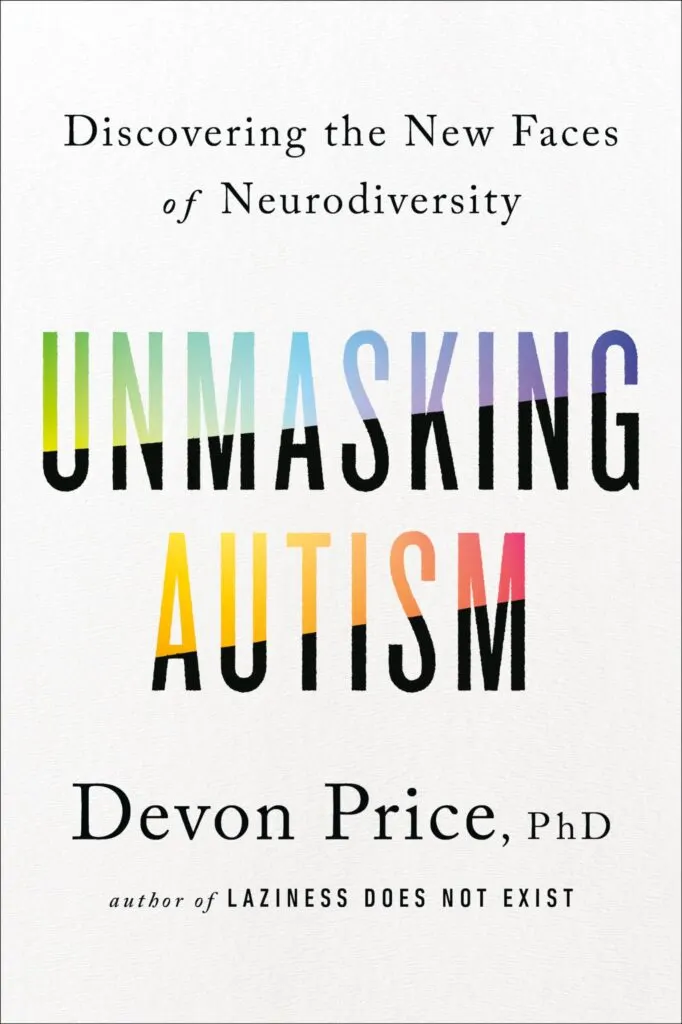
In Unmasking Autism: Discovering the New Faces of Neurodiversity, autistic psychologist Dr. Devon Price shares personal insights alongside research to explore how many autistic people learn to mask their natural traits. You’ll learn about the various ways autism can present itself, especially in groups that are often overlooked like autistic women, LGBTQ+ individuals, and people of color.
Dr. Price breaks down the costs of masking – the practice of hiding autistic traits to fit in.
You’ll discover how constant camouflaging can lead to burnout, anxiety, and a lost sense of self. Real stories from autistic adults help illustrate these experiences and introduce you to the “new faces of neurodiversity.”
Price offers gentle guidance for readers questioning their own neurodiversity. The text includes helpful tools for self-reflection and guidance on the best way to embrace your authentic self.
Whether you’re an autistic person, think you might be, or want to support someone who is, this excellent book broadens the autism conversation to provide valuable perspectives on neurodiversity.
Pros
- Clear, accessible writing style makes complex topics easy to understand
- Offers practical advice for self-discovery and self-acceptance
- Includes diverse perspectives and experiences
Cons
- Limited discussion of support strategies
- Some sections focus heavily on identity politics
- May feel too academic for casual readers
Life on the Bridge
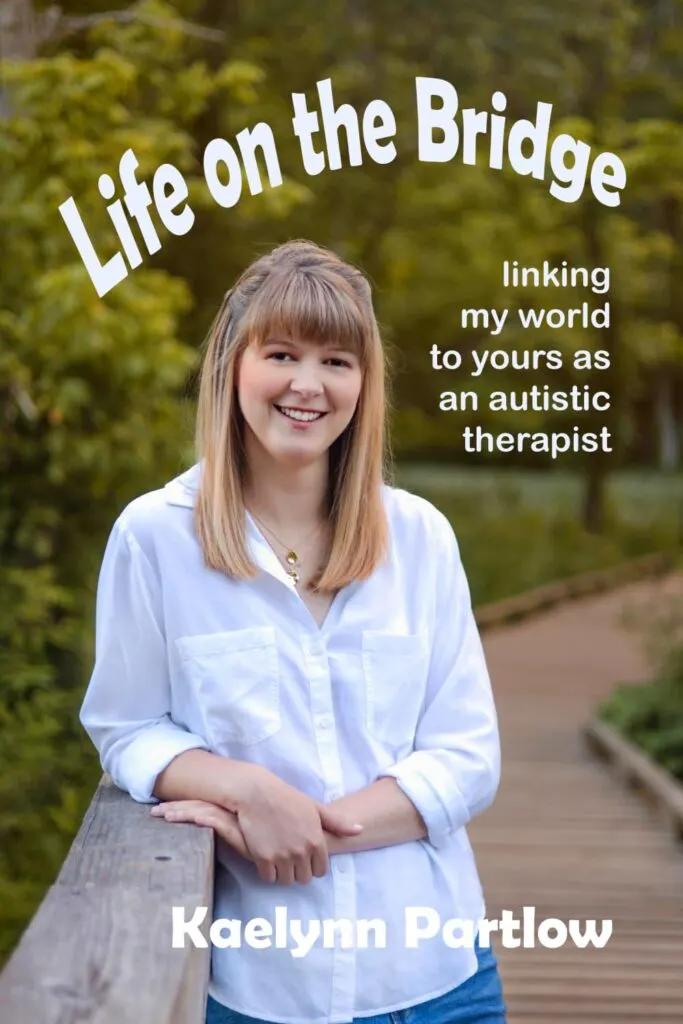
You’ll find unique value in this autism guide written by an autistic therapist who bridges both professional expertise and personal autistic experience. The author brings a rare dual perspective whose approach makes complex topics easier to understand through clear examples and practical advice.
You’ll learn useful strategies for handling common challenges like sensory overload and social situations. The book includes specific tips for parents, teachers, and autistic individuals to improve daily life and communication.
This is one of the best books out there if you’re looking for a friendly autism conversation rather than a textbook read.
Real-life examples help connect abstract mental health concepts to everyday situations you might face. Short chapters make it simple to find the information you need when you need it.
This guide works well for both autistic people and those who support them. The author’s personal stories add authenticity while her professional knowledge provides practical solutions that work in real life.
Pros
- Combines professional and personal autism spectrum disorder insights
- Clear examples of real-world situations
- Easy-to-read writing style
Cons
- Limited focus on adult autism topics
- Some strategies may need adaptation
- More personal stories than clinical research
Connecting With Autism
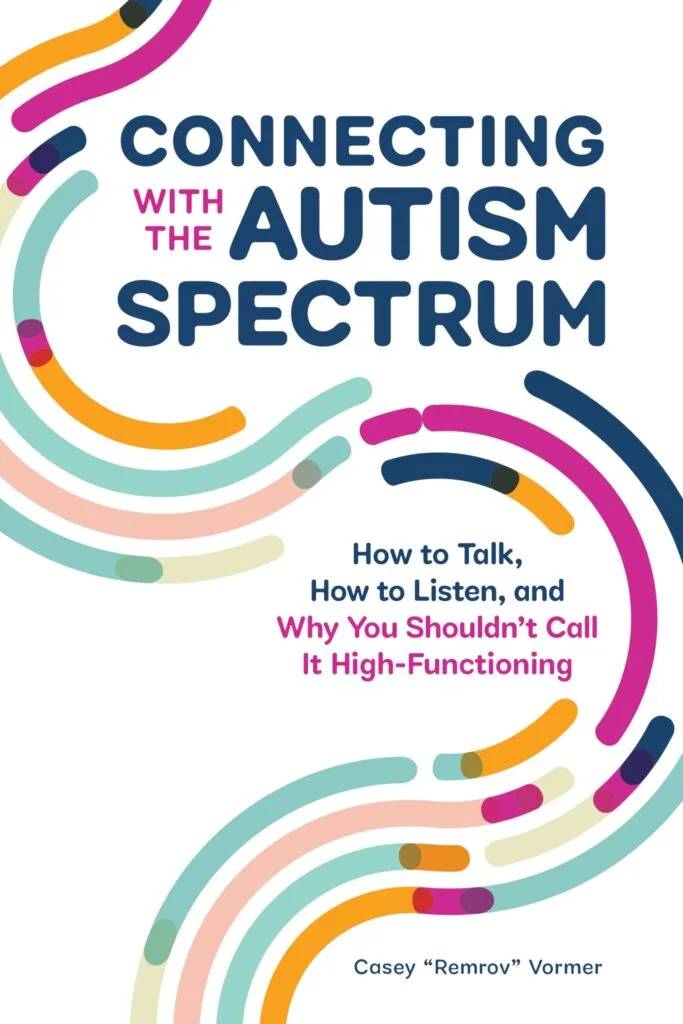
Autistic author Casey Vormer shares personal insights and real strategies to help you communicate better with autistic individuals. The book explains common social challenges and provides helpful ways to adapt your communication style.
You’ll learn why certain terms like “high-functioning” can be harmful and discover more respectful ways to talk about autism. The author includes many examples from their own life experiences to illustrate important points about autism.
The guide focuses on building genuine connections through better understanding. You’ll gain practical advice on the best way to improve conversations and relationships with autistic people in your family, workplace, or social circle.
The straightforward writing makes complex topics easy to grasp. Each chapter breaks down specific aspects of autism with clear explanations and useful tips you can start using right away.
Pros
- Written from an authentic autistic perspective
- Clear, easy-to-read writing style
- A great book for finding practical tips for daily interactions
Cons
- Some dense information sections
- Limited scope on certain topics
- May disagree with some author opinions
Adult Autism Guide
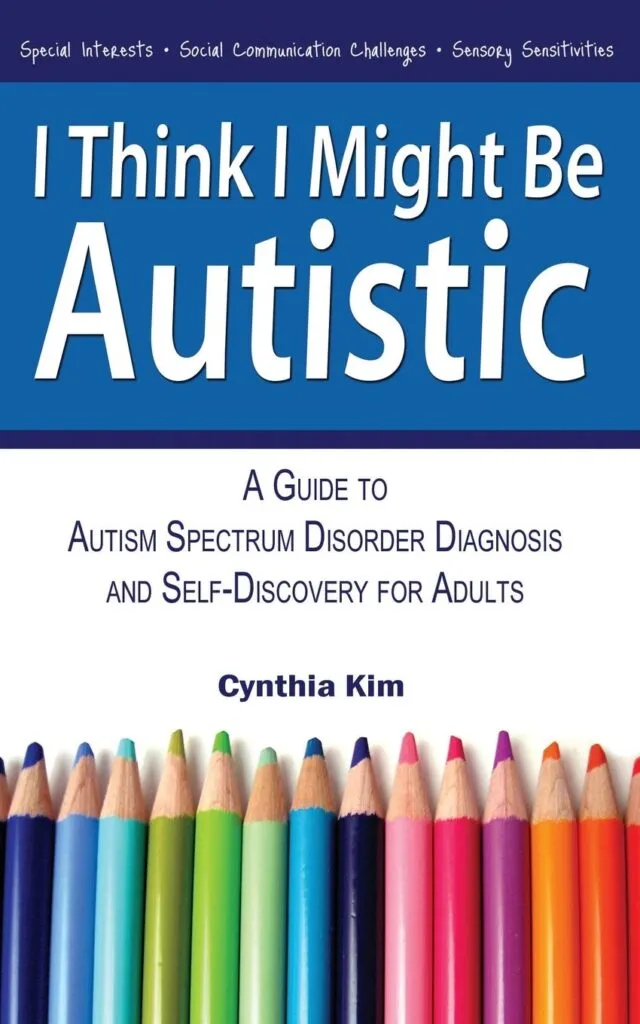
This book walks you through common traits and experiences in autistic adults. You’ll find relatable examples that help you connect the dots between your experiences and autism characteristics.
Author Cynthia Kim, who was diagnosed with Asperger syndrome in her fourties, breaks down the mental health diagnosis process into simple steps.
She explains different types of assessments and what to expect during evaluation. The guide includes cost information and tips for finding qualified mental health professionals.
You’ll learn about self-discovery and acceptance throughout your journey. The book addresses common doubts and questions many adults face when exploring an autism spectrum disorder diagnosis.
Plus, its compact size makes it easy to read in small chunks without feeling overwhelmed.
Pros
- Written by an autistic author with personal experience
- Clear explanations of autism traits and testing options
- Includes real-world strategies for seeking diagnosis
Cons
- Focuses mainly on the mental health system in the United States
- Some information can be found online for free
- Brief coverage of complex topics
The Reason I Jump
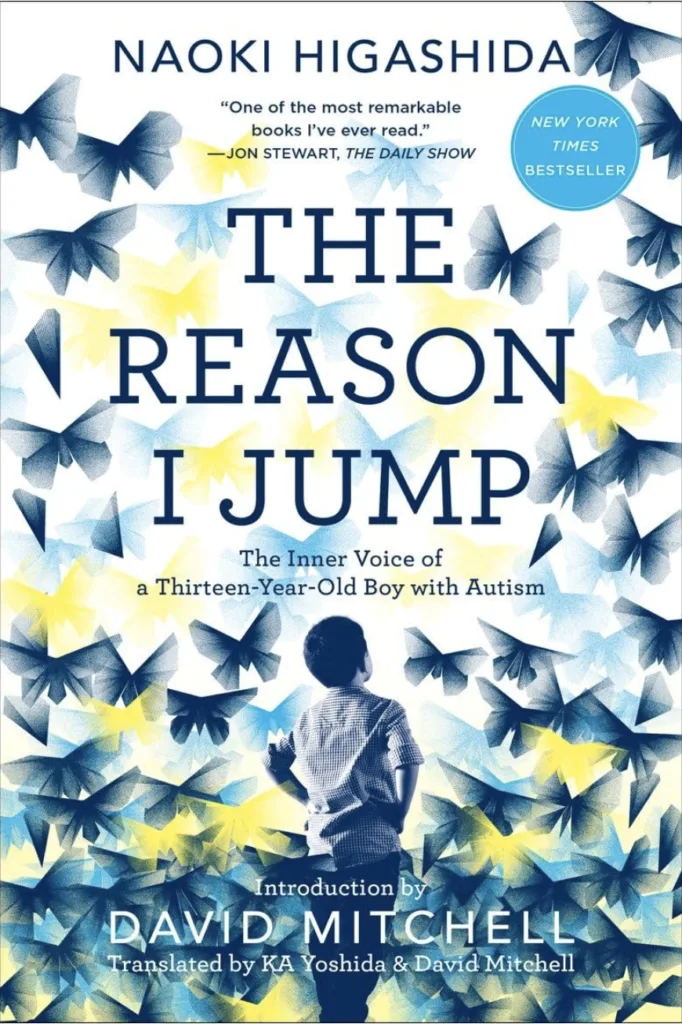
This book by Naoki Higashida offers a unique and poignant perspective into the autistic mind of a young boy. Written when Higashida was just thirteen years old, the book is structured primarily as a series of questions and answers, addressing common queries about the behaviors and thoughts of individuals with autism.
The insights of Naoki Higashida are both profound and accessible, making it a great book for providing readers with a deeper understanding of the challenges and experiences faced by those on the autism spectrum.
His ability to articulate his inner world, despite his communication difficulties, is nothing short of extraordinary. The book’s candid nature has offered countless readers the best way to gain empathy and a better grasp of the nuances of autism.
The book has been widely praised for its authenticity and emotional depth.
David Mitchell, who co-translated the book into English, emphasizes that it serves as an important thought experiment, inviting readers to imagine life from Higashida’s perspective. This approach not only educates but also deeply moves readers, making it a valuable resource for anyone looking to understand autism better.
Authoring Autism
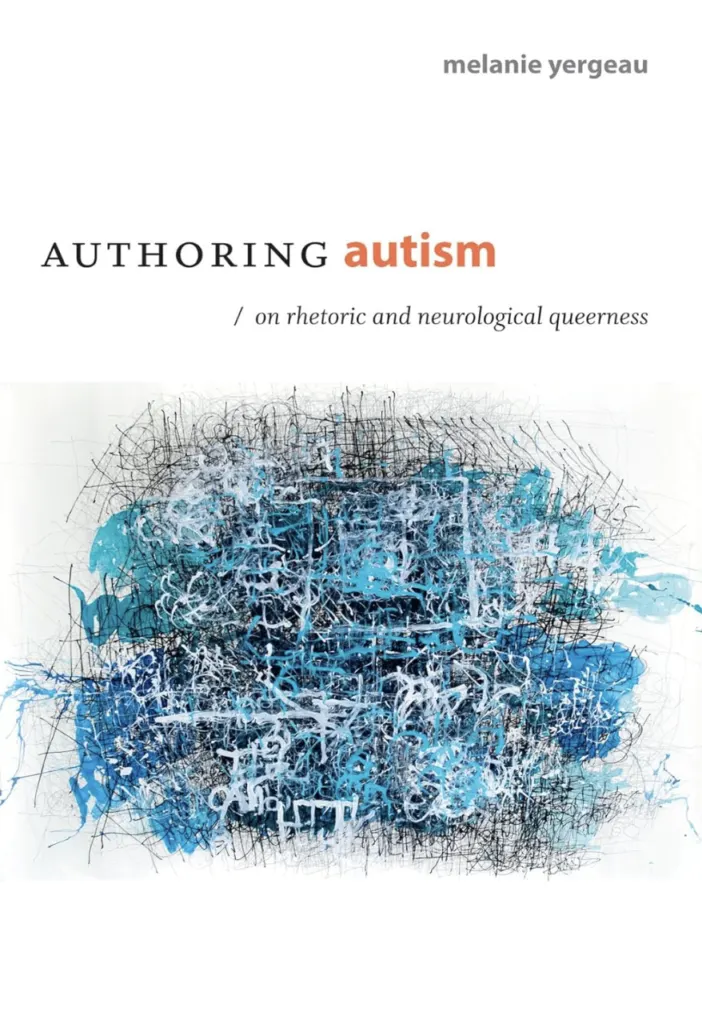
This book by M. Remi Yergeau is a groundbreaking work that intersects the fields of rhetoric, disability studies, and queer theory. The book challenges conventional narratives about autism spectrum disorder by framing it not merely as a condition to be studied but as a mode of rhetorical and cultural production.
Yergeau, who is herself autistic, uses her personal experiences to critique and expand the discourse surrounding autism.
She argues that autistic individuals are often denied rhetorical agency and are instead objectified in both academic and popular representations. By employing a queer theoretical framework, Yergeau explores how autistic individuals navigate and resist these marginalizing narratives.
One of the key strengths of the book is its ability to intertwine personal narrative with rigorous academic analysis. Yergeau’s writing is both accessible and intellectually stimulating, making complex theoretical concepts understandable without oversimplifying them.
The book addresses the stereotypes and misconceptions that often surround autism, advocating for a more nuanced and respectful understanding of autistic experiences. It provides valuable insights into the lived experiences of autistic individuals and calls for a more inclusive and equitable approach to understanding and representing autism.
The Autistic Brain
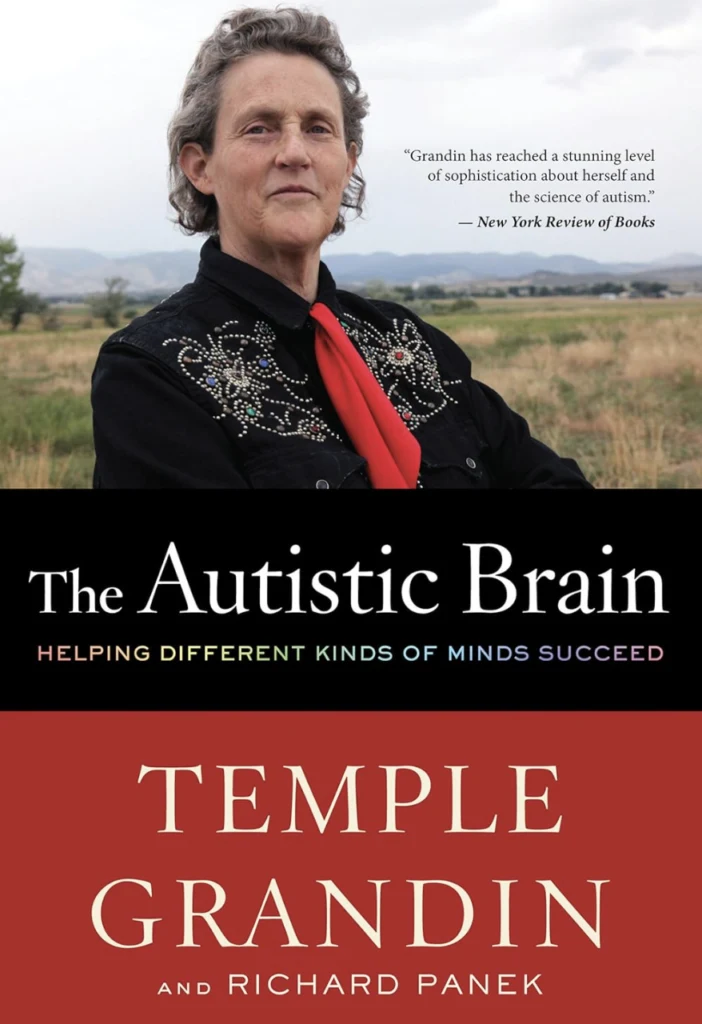
This book by Temple Grandin and Richard Panek is a compelling exploration of autism from both a scientific and personal perspective. Temple Grandin, a renowned autistic advocate and professor, combines her personal experiences with the latest scientific research to provide a comprehensive understanding of autism.
The book delves into various aspects of autism, including its genetic basis, neurological underpinnings, and the diverse ways it manifests in individuals.
Grandin uses her unique position as both a scientist and autistic person to bridge the gap between the scientific community and the general public. She explains complex concepts in an accessible manner, making the book suitable for a wide audience, including parents, educators, and individuals on the autism spectrum.
One of the book’s strengths is its emphasis on the strengths and abilities of autistic individuals.
Grandin challenges the deficit-focused view of autism and highlights how autistic traits can be advantageous in certain contexts. For example, she discusses how her own visual thinking has contributed to her success in animal science.
This is a great book for parents of autistic children and educators looking for practical advice on how to support autistic individuals. Grandin emphasizes the importance of early intervention and individualized education plans, as well as the best way to leverage the strengths of the autistic mind to help them succeed.
What About Me? – Autism Sibling Guide
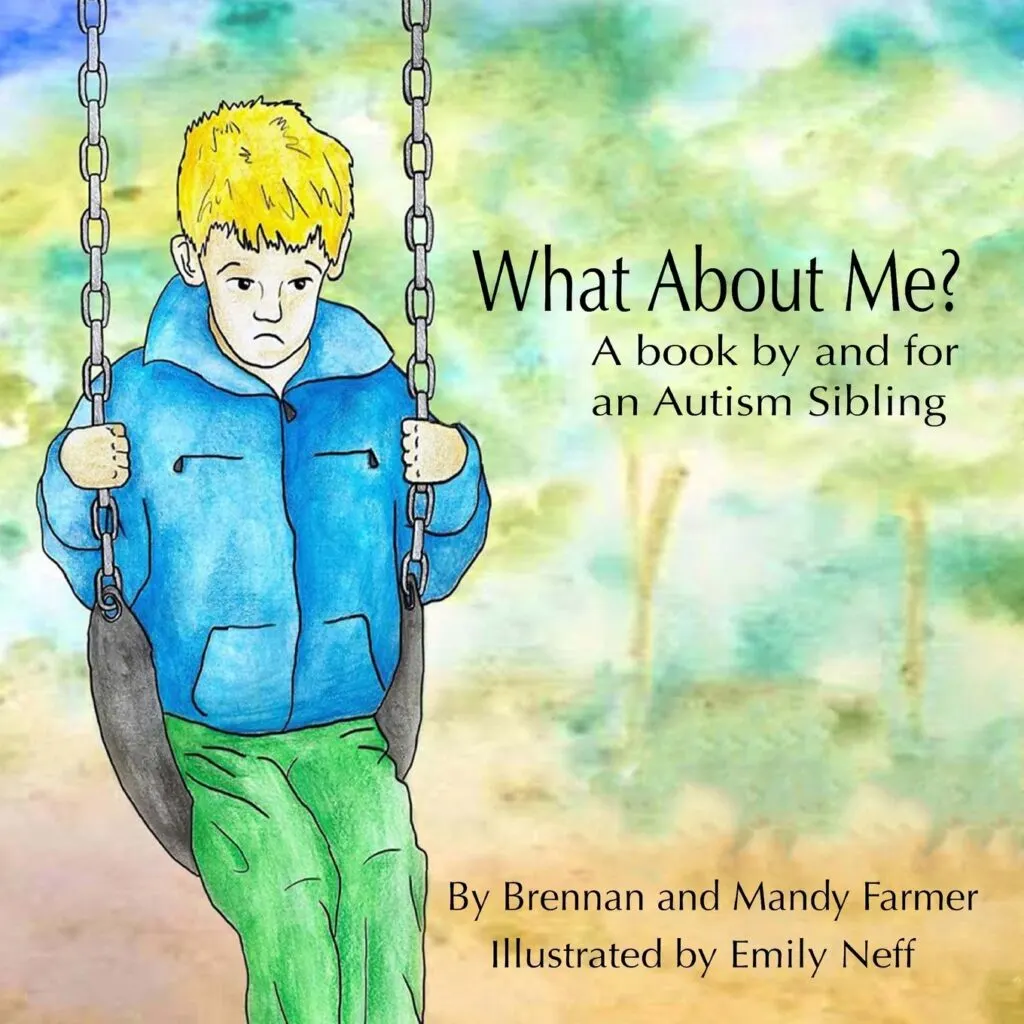
While not technically offering authentic autistic representation, this picture book was written by the sibling of a child with autism and may be a great book to connect with children facing similar challenges.
Written from a big brother’s point of view, this book speaks directly to children who have siblings with autism. The author draws from personal experiences to validate feelings that many brothers and sisters share.
The story touches on common situations like different rules for different siblings and dealing with challenging behaviors. Kids will see themselves in the honest portrayal of both the love and frustration that comes with being an autism sibling.
At 32 pages with straightforward text, you can easily read this picture book with children ages 4-8. The simple illustrations help young readers connect with the story.
Parents note that this picture book often sparks important family discussions about autism’s impact on the whole family.
Pros
- Written by someone who grew up with an autistic sibling
- Simple language perfect for young readers
- Great place to turn for addressing the real emotional challenges siblings face
Cons
- May be too basic for older children
- Limited to one family’s specific experience
- Some parents report emotional reactions from kids
How to Find the Best Books About Autism by Autistic Authors
Books about autism by non-autistic writers, while often informational and helpful, can miss important perspectives and experiences. To gain the most accurate perspective, you’ll want to look for books about autism written by actually autistic authors.
The author’s bio or “about” section is a great place for confirming if they identify as an autistic person. Some writers are open about their diagnosis, while others may use terms like “on the spectrum” or “neurodivergent.”
Look for good books that match your specific interests. Autism books cover many topics:
- Memoirs and personal experiences
- Self-help and coping strategies
- Social skills and relationships
- Workplace navigation
- Sensory processing disorder
- Gender and sexuality
- Parenting while autistic
- Autistic characters navigating day-to-day life
- Picture book options for kids
Pay attention to publication dates.
Newer books tend to use more current and respectful language about autism spectrum disorder. Books from the past 5-10 years often reflect a more modern understanding.
And consider reading reviews from autistic readers. They can help you spot good books that feel authentic and avoid ones that promote harmful stereotypes.
The best books celebrate autism as a difference rather than a deficit, so skip any that focus only on “curing” or “overcoming” autism.
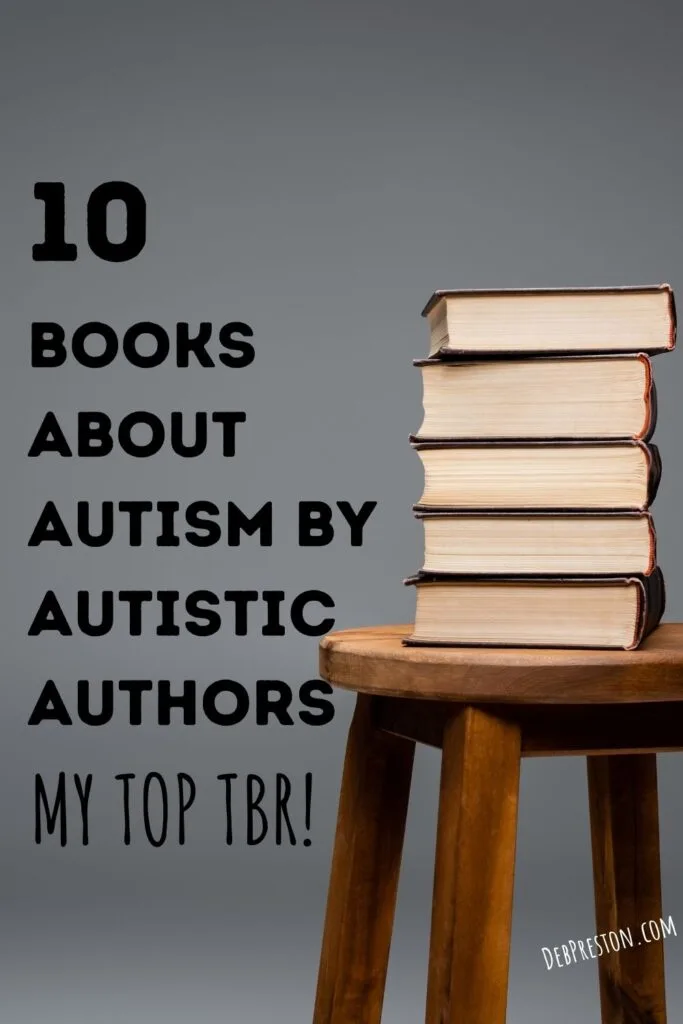
Reading good books by actually autistic authors will open you up to their personal stories, practical advice, autistic characters, and unique autistic voices. And gaining these perspectives can help you better understand autism and the autistic experience, all thanks to their first-person narratives.
Have any favorite books about autism by autistic authors that I missed? Be sure to share your finds in the comments!
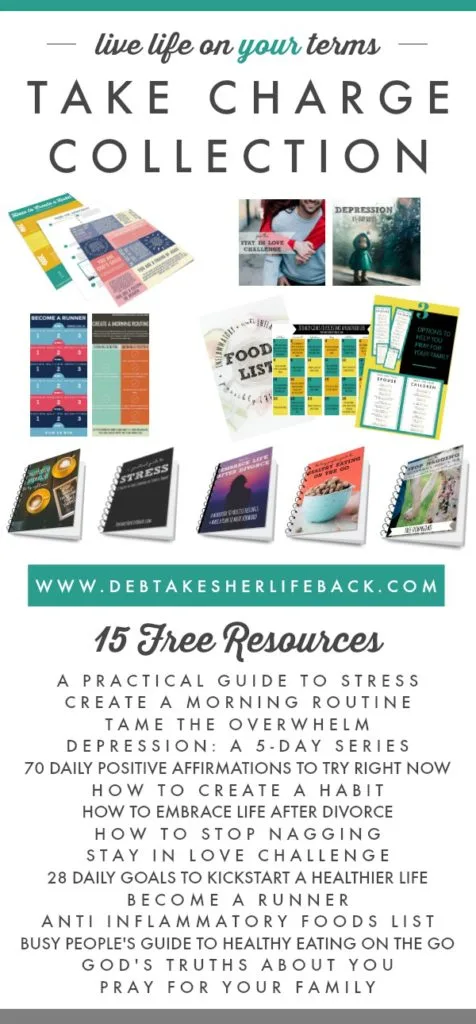
P.S. Is researching this list of books just the beginning of your taking charge of your life? Our Take Charge Collection of 15 free resources will help you to simplify, organize, and take charge of your life, and to live with intention! Get yours free HERE.
Disclosure: While all opinions are our own, we are a participant in the Amazon Services LLC Associates Program and other affiliate advertising programs, designed to provide a means for us to earn fees by linking to Amazon.com and affiliated sites, at no additional cost to you.



